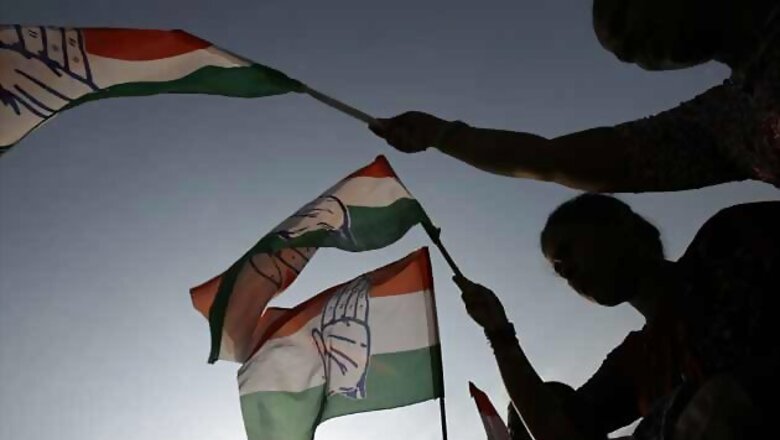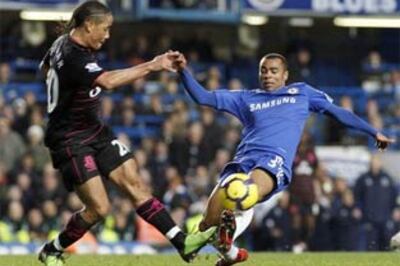
views
BSR Congress is an unknown entity in Indian politics and while in the records of the Election Commission it is a registered party, it is not recognised. Yet senior leaders of both the Congress and the Bharatiya Janata Party (BJP) in New Delhi are asking what impact this small outfit and two bigger regional parties will make in Karnataka Assembly elections as polling takes place on May 5. Results, which come out on May 8, will have a morale impact on both the national parties which are the main players in Karnataka.
BSR stands for Badava Shramkia Raitha (Poor Working Farmer) and the party is floated by former BJP minister Sreeramulu, who is close to the Bellary mining baron Janardhan Reddy, now languishing in a Hyderabad prison. Sreeramulu, who belongs to the Nayak community, has been active in four districts - Bellary, Raichur, Koppal and Gadag in the central eastern part of the state and the party's influence is said to be limited to only 10 per cent of the total of 224 constituencies in the state. Yet when Sreeramulu and Janardhan Reddy were the leading lights of the BJP in the 2008 Assembly elections, they had shown their massive money power to get big results for the party in these districts. In the Lok Sabha elections held in 2009, they helped the BJP win the constituencies of this region, even though the Sreeramulu's sister J Shantha scraped through with a margin of 2000 votes.
Reddy and Sreeramulu ruled Bellary with an iron hand during the three- year rule of BS Yeddyurappa, but the mining scandal took its toll. Sreeramulu resigned from the Assembly, won a by-election and floated his own outfit. He has gone on padayatras in the region, and hopes that his party will do well in the dozen constituencies reserved for scheduled tribes in the region. As Janardhan Reddy is in jail and there is a ban on mining, the critical question is on how much funds Sreeramulu will have. Last time the mining camp was accused by the Opposition of "red earth, red note" gimmickry, meaning that 1000 rupee notes which are red in colour were freely distributed to get votes.
The stakes are high for the Congress, the BJP, as well as regional stalwarts like HD Deve Gowda and his son HD Kumaraswamy and former chief minister BS Yeddyurappa. The father-son duo, strong in the southern Karnataka, controls the Janata Dal (Secular) within their family and this is the fourth Assembly Election for the party. On the other hand Yedyurappa's Karnataka Janata Party (KJP) - formed a few months ago - tests the electoral waters for the first time. Both of them are relying on two dominant castes in the state - Gowdas have their influence mainly among Vokkaligas, while Yedyurappa takes credit for swinging the Lingayat vote in favour of the BJP in 2008.
Both the KJP and the BSR Congress are breakaway groups of the BJP, and thus have hobbled the ruling party in specific pockets. The BJP has put on a brave face for the elections, despite being hobbled by constant infighting, splits, corruption charges against its chief ministers and senior ministers, and anger at mismanagement of the government. The Congress, on the other hand, presents a united front while not projecting a single dominant leader, but is worried about undercutting by the smaller regional players as it confronts the saffron party.
For the leaders of both the parties, the stakes for the next Lok Sabha elections are high. Though the superstitious say those who win Bangalore end up losing Delhi, both the Congress and the BJP are desperate as victory in Karnataka will be a pointer to Delhi. On several occasions when a party won majority in Karnataka, it sat in the Opposition in Delhi. In recent times, only exception was HD Deve Gowda who led Janata Party to victory in 1994 Assembly elections, and two years became the "accidental prime minister" at the Centre. Otherwise, the Congress won Karnataka in 1999 but at the same time BJP-led NDA came to power in Delhi. In 2008, the BJP wrested Karnataka but remained in Opposition when Lok Sabha elections were held next year.
The Congress is banking on Karnataka to reverse its fortune in larger states, as it has lost in bigger states like Uttar Pradesh and Gujarat recently. A good win in Karnataka would also ensure more Lok Sabha seats in 2014, as there are 28 MPs from Karnataka. In 2009, BJP got 19 Lok Sabha members, highest from any state. This is the reason why the Congress has avoided much experimentation in selection of Congress candidates, trusting veterans in majority of the Assembly constituencies.
For the BJP, which declares it is the party in-waiting at the Centre, Karnataka is a litmus test as the party has not done well in recent Assembly elections in the country, except in Gujarat. It lost power in smaller states like Himachal Pradesh and Uttarakhand, while coming a cropper in Uttar Pradesh. As the party attempts to cash in on the failures of UPA II government, it is hoping for an honourable performance in Karnataka. That is why the party is making efforts to rope in Gujarat Chief Minister Narendra Modi, considered the best crowd puller in saffron parivar, to campaign extensively in Karnataka. But Modi has done his own homework on the party prospects in Karnataka, and he is also not on good terms with party general secretary Ananth Kumar, who controls the Karnataka unit after the exit of bete noire Yeddyurappa. Modi is keeping everyone guessing on his Karnataka plans. If he campaigns and the BJP wins, he would get more credibility to lead the party but if his intensive effort fails to fetch results, then he could be labelled as only a winning phenomenon confined to Gujarat.
This is the reason why the Congress does not want to project Rahul Gandhi as the sole campaigner in Karnataka. The high command has realised that excessive projection of Rahul and his intensive involvement in the nitty-gritty of electioneering in Uttar Pradesh had backfired. The Congress is, therefore, talking of collective campaigning by Sonia Gandhi, Rahul and Prime Minister Manmohan Singh. Even in the run up to the elections, Rahul, who is the party vice president, left it to senior leader AK Antony to supervise the candidate selection process, and has asked the local leaders to prepare the campaign strategy in the southern state.
Politically Karnataka is not as homogenous in its electoral behaviour as other states. The different regions of the state present a bewildering political mosaic. Even though two national parties and three regional parties are in the race, the fight is not five cornered anywhere. Except the congress which is everywhere in the state, the contest elsewhere is either triangular or even direct.



















Comments
0 comment